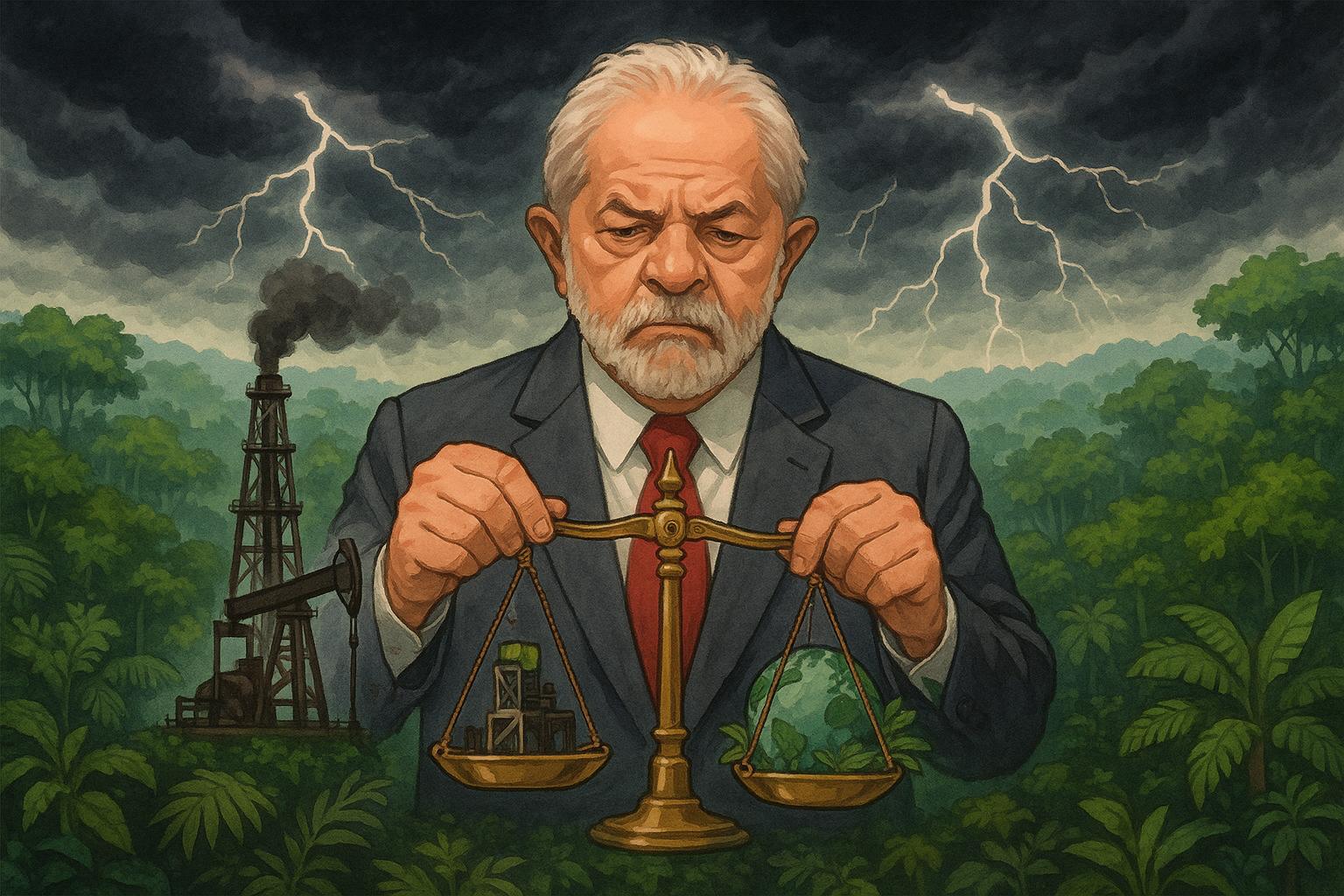As Brazil gears up to host the U.N.'s first climate talks in the Amazon later this year, a series of controversial decisions by President Luiz Inácio Lula da Silva’s administration are raising eyebrows and showcasing an increasingly contradictory stance on environmental issues. Just months ahead of the COP30 climate summit, the Brazilian federal government has fast-tracked several projects detrimental to the Amazon rainforest, undermining Lula’s previously strong environmental platform.
Recent approvals from Brazil’s federal environmental agency include plans for offshore drilling near the Amazon's mouth and rock blasting along the Tocantins River, set to facilitate shipping routes for soybeans, predominantly aimed at exports to China. Environmental advocates fear these plans could severely undermine any credibility Lula might have going into the climate summit. Cleberson Zavaski, president of the National Association of Environmental Public Servants, voiced concern: “What will Brazil show up with at COP30 in November? Will it be, once again, a list of commitments that contradict what the country itself is putting on the table today?”
Lula’s trajectory on environmental issues contrasts sharply with his campaign promises made during the 2022 elections, where he positioned himself as a defender of the Amazon against the rampant deforestation seen under former President Jair Bolsonaro. Yet, shortly after taking office, Lula expressed support for exploratory drilling operations by Petrobras—Brazil’s state-run oil company—criticising the environmental agency for delays in approval. This marked a significant departure from the commitments he made to protect the rainforest and has led to an outcry from environmental groups both domestically and internationally.
Simultaneously, Brazil's Congress has moved to weaken environmental protections significantly. Legislation passed in May streamlines environmental licensing, allowing project approvals for previously contentious developments, such as paving the BR-319 highway through the pristine rainforest. Critics argue the highway not only threatens the delicate ecosystem but also facilitates illegal activities related to land grabs and further deforestation. As noted by climate advocacy groups, these legislative moves indicate a “perfect combo to wipe out environmental protections and Indigenous land demarcations” in Brazil, raising alarms over the potential for increased carbon emissions and climate crises.
Despite pushback from Lula’s Workers’ Party and opposition from figures like Environment Minister Marina Silva—who has openly warned about the severe implications of such legislation—the president appears positioned to endorse much of the changes set forth by Congress. Internal divisions within Lula’s cabinet are becoming apparent; Silva’s role has visibly diminished, causing concern about a potential regression to policies reminiscent of previous administrations when environmental oversight was badly compromised.
The environmental landscape in Brazil has also seen troubling developments in the form of heightened deforestation rates, with a recent report indicating a 92% increase in deforestation in May 2025 compared to the previous year. This surge endangers Brazil’s claims of improved environmental stewardship and poses a stark threat to Lula's pledges to end deforestation by 2030. João Paulo Capobianco of the Ministry of the Environment attributes this rise to increased wildfires but stressed that reversing these trends is critical for Brazil's international standing and the overall health of the planet.
As Brazil prepares for COP30, with Lula advocating for a fair transition away from fossil fuels, the juxtaposition of ambitious pronouncements against a backdrop of accelerated exploitation raises questions about the authenticity and sustainability of the government’s commitment to protecting the Amazon. Marina Silva has suggested that COP30 presents a pivotal opportunity for global climate action, but without a concerted effort to align policy with rhetoric, Brazil risks further jeopardising both its environmental credentials and global climate goals.
📌 Reference Map:
- Paragraph 1 – [1], [2]
- Paragraph 2 – [1], [2], [5]
- Paragraph 3 – [2], [4], [6]
- Paragraph 4 – [2], [6]
- Paragraph 5 – [4], [5]
Source: Noah Wire Services
